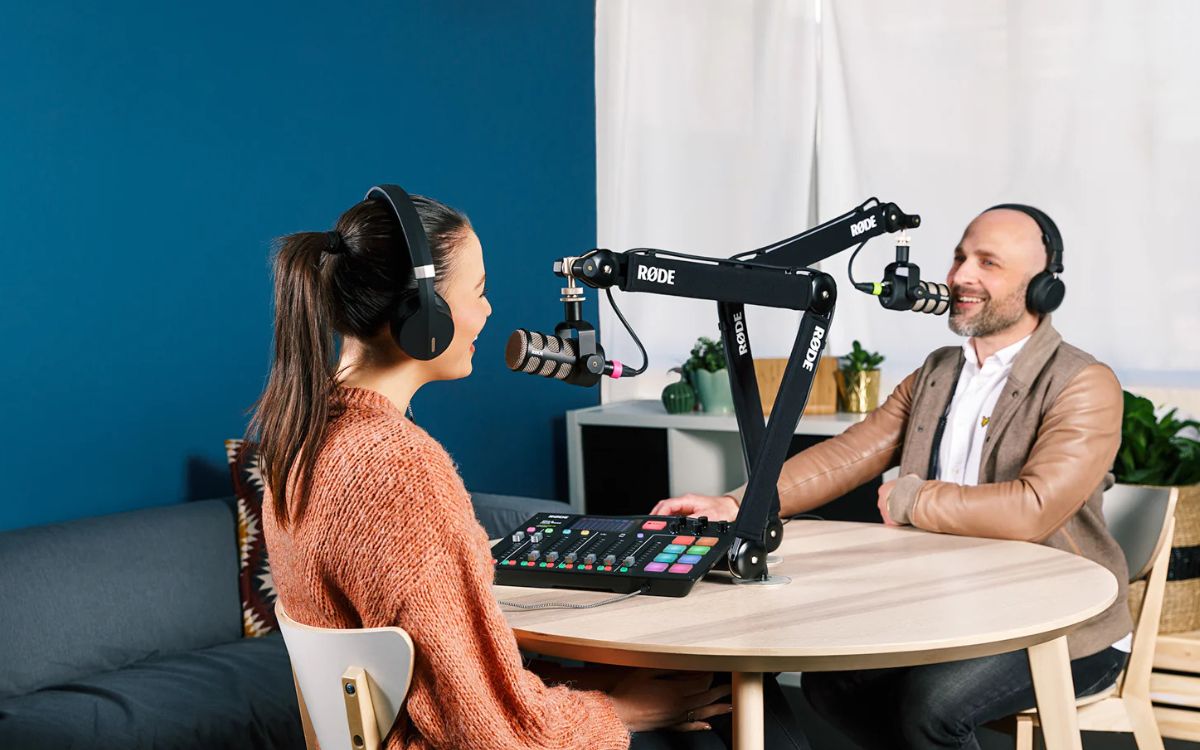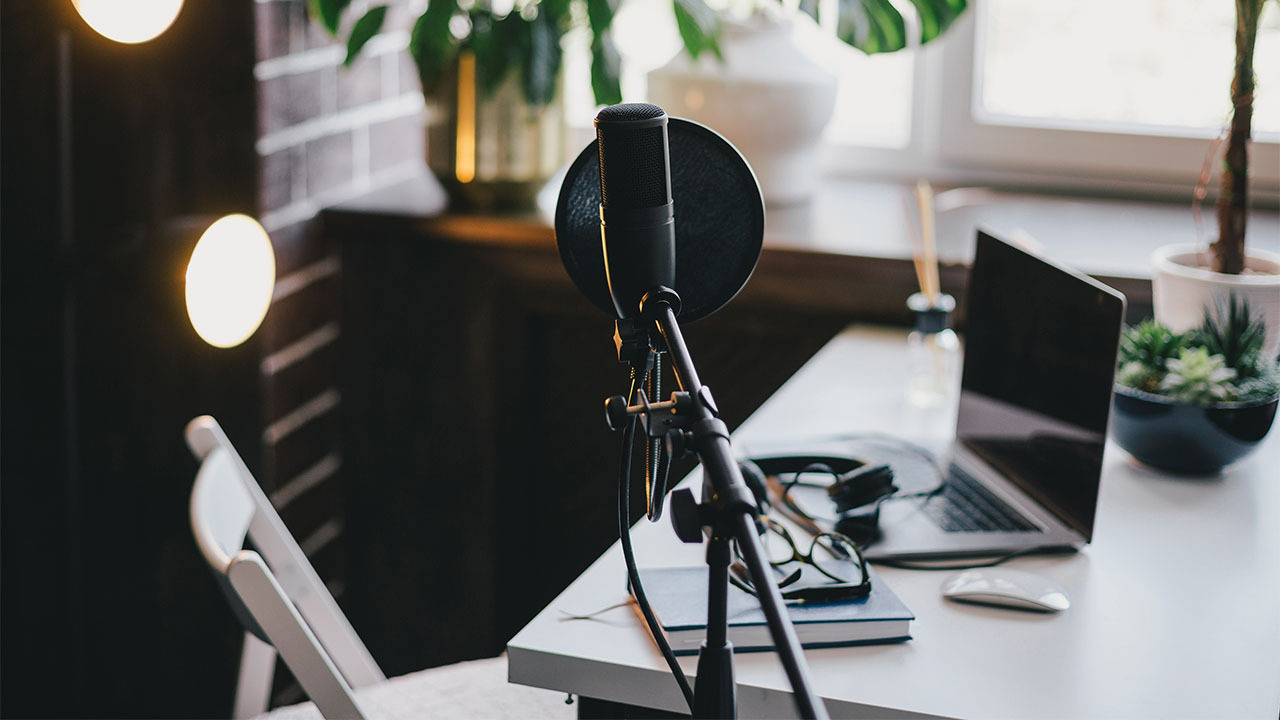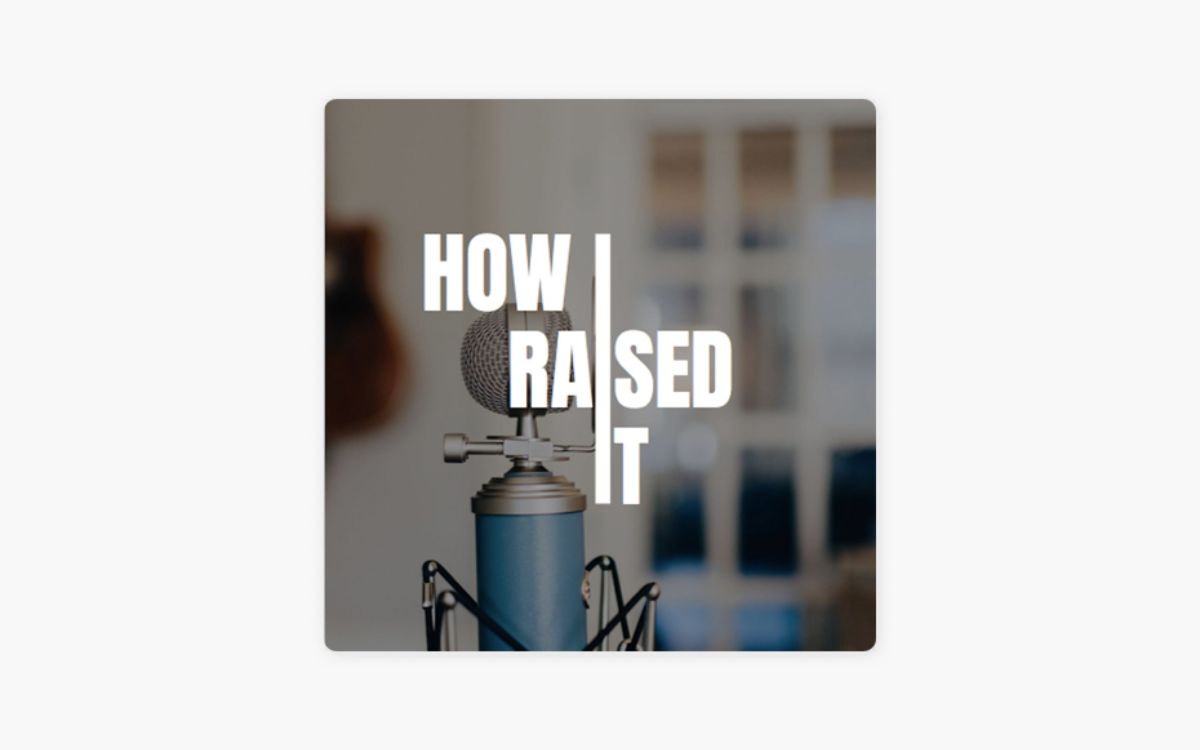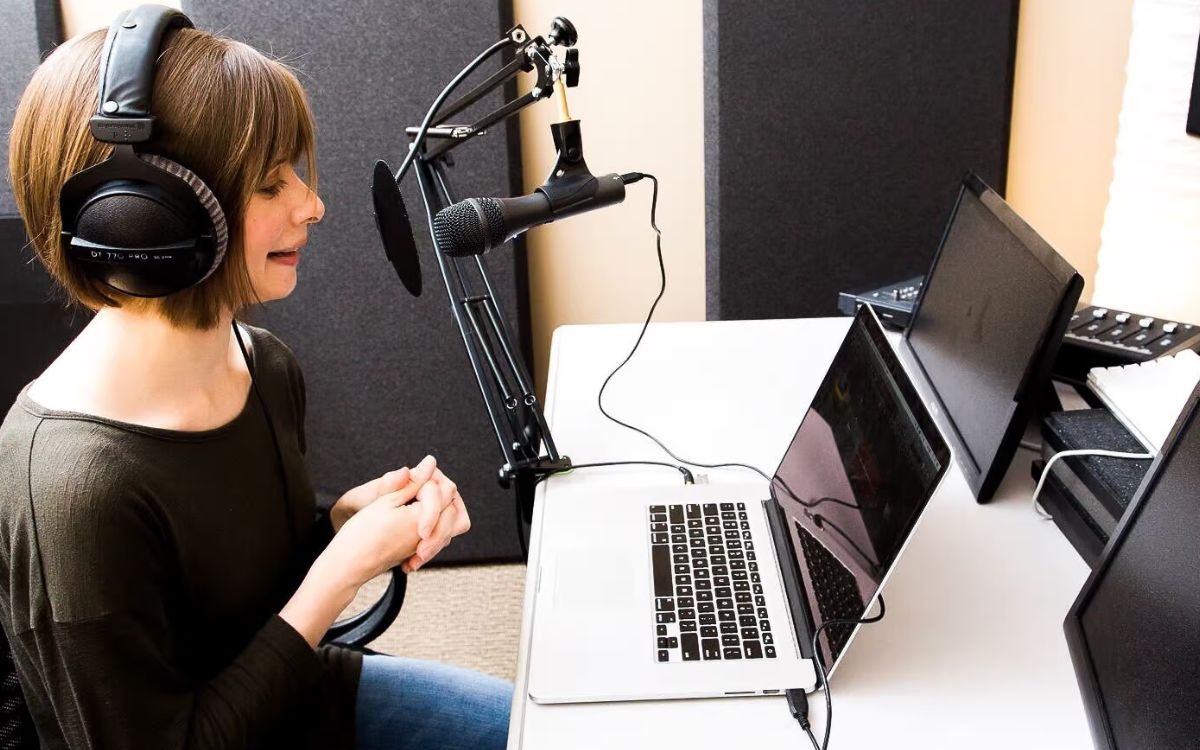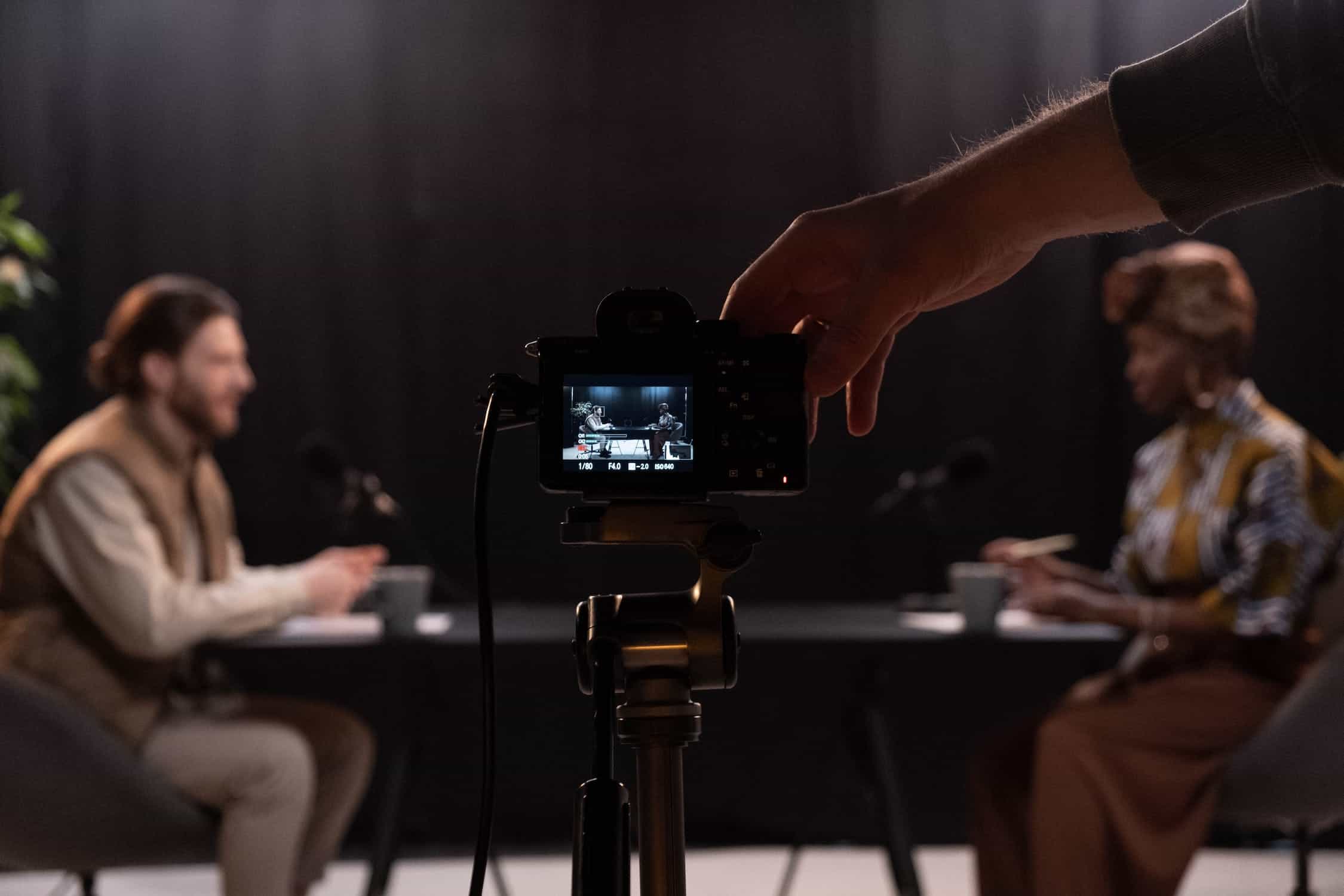Home>Events & Info>Podcast>How Do I Cite A Podcast
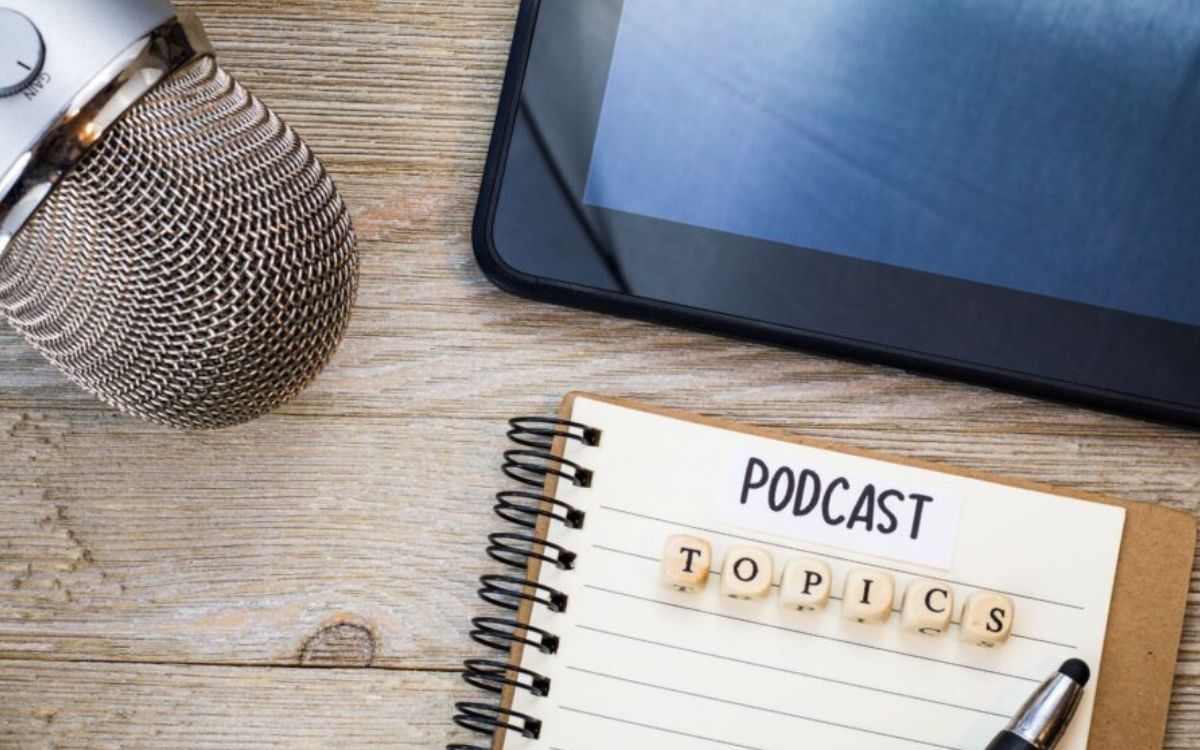

Podcast
How Do I Cite A Podcast
Published: December 12, 2023
Learn how to properly cite a podcast in your academic writing. Find step-by-step instructions and examples for citing podcasts in various citation styles.
(Many of the links in this article redirect to a specific reviewed product. Your purchase of these products through affiliate links helps to generate commission for AudioLover.com, at no extra cost. Learn more)
Table of Contents
Introduction
Podcasts have become increasingly popular in recent years, offering a wealth of information and entertainment across a wide range of topics. With the rise of podcasts as a valuable source of information, it is important to understand how to properly cite them in your research or academic work. Citing podcasts not only gives credit to the original creators but also allows your readers to easily find and access the referenced content.
In this article, we will explore the importance of citing podcasts and provide a comprehensive guide on how to properly cite them using different citation styles. Whether you are a student, researcher, journalist, or content creator, understanding the correct way to cite podcasts will greatly enhance the credibility and professionalism of your work.
We will delve into popular citation styles, including MLA, APA, and Chicago, and provide examples for citing podcast episodes as well as entire podcast series. Additionally, we will discuss the inclusion of timestamps in citations and share some useful tips for accurately citing podcasts.
By the end of this article, you will have a clear understanding of how to cite podcasts according to different citation styles and be equipped with the necessary knowledge to confidently incorporate podcasts into your research or writing.
Why Citing Podcasts is Important
Citing podcasts is essential for several reasons. Firstly, it acknowledges and gives credit to the creators and contributors of the podcast content. Just like citing any other source, citing a podcast acknowledges the intellectual property rights of the original creators. It shows respect for their work and helps to maintain academic integrity.
Secondly, citing podcasts allows readers and researchers to locate and access the specific episode or series being referenced. Podcasts often cover a wide range of topics and can have multiple episodes within a series. By providing proper citations, you enable others to find and listen to the original content, enhancing the transparency and replicability of your research or writing.
Citing podcasts also adds credibility to your work. By referencing reputable and high-quality podcasts, you demonstrate that you have consulted reliable sources and have taken steps to ensure the accuracy of the information presented. This enhances the validity of your arguments, especially when you incorporate expert opinions or insights shared in the podcast.
Furthermore, citing podcasts contributes to the broader academic discourse. It allows for the traceability and verification of ideas and arguments, facilitating further research and discussion. When you cite a podcast, you enable others to build upon the referenced work and engage in meaningful conversations within the podcasting community.
From an ethical standpoint, citing podcasts is a way of giving back to the podcasting community. By recognizing and citing their work, you contribute to the visibility and reach of the podcast. This acknowledgement can help podcasters gain recognition and attract a wider audience, which in turn supports the growth of the podcasting industry as a whole.
In summary, citing podcasts is important because it acknowledges the creators, allows others to locate and access the original content, adds credibility to your work, contributes to academic discourse, and supports the podcasting community. By taking the time to properly cite podcasts, you demonstrate professionalism and integrity in your research or writing.
Understanding the Different Citation Styles
When it comes to citing podcasts, it is important to understand and use the appropriate citation style based on the guidelines provided by your institution or publication. The three commonly used citation styles are MLA (Modern Language Association), APA (American Psychological Association), and Chicago style. Each style has its own set of rules and formatting guidelines for citing sources, including podcasts.
The MLA style is commonly used in humanities and liberal arts fields. It emphasizes authorship and provides guidelines for citing various types of sources, including podcasts. MLA citations typically include the author’s name, the title of the episode or series, the title of the podcast, the date of publication, and the URL or access information.
The APA style is commonly used in social sciences, education, and psychology. It focuses on clarity and conciseness and provides guidelines for citing audiovisual media, including podcasts. APA citations typically include the author’s name, the date of publication, the title of the episode or series, the title of the podcast, and the retrieval information or URL.
The Chicago style is commonly used in history, literature, and some social sciences. It offers two different citation styles: the author-date system and the notes-bibliography system. For citing podcasts, the author-date system is typically used. Chicago style citations usually include the author’s name, the title of the episode or series, the title of the podcast, the date of publication, and the URL or DOI.
Understanding and using the correct citation style is crucial for maintaining consistency and adhering to the standards set by your field of study or the publication you are submitting your work to. It ensures that your citations are formatted correctly and that the necessary information is included for others to locate and verify the referenced podcast.
As you read through the following sections on MLA, APA, and Chicago styles, keep in mind the specific guidelines and requirements of your institution or publication. It is always recommended to consult the official style guides or check with your instructor or editor for any specific instructions or variations in citation formatting.
MLA Style
The Modern Language Association (MLA) style is commonly used in the humanities and liberal arts fields. When citing a podcast in MLA style, the general format follows the pattern: Author(s). “Title of Episode or Series.” Title of Podcast, Publisher, Day Month Year, URL or DOI.
Here’s an example of how to cite a podcast episode in MLA style:
Last Name, First Name. “Title of Episode.” Title of Podcast, Publisher, Day Month Year, URL or DOI.
For example:
Smith, Jane. “The Rise of Renewable Energy.” Energy Today Podcast, Energy Media Group, 15 Mar. 2022, www.example.com/energy-today-podcast/episode123.
If you are citing a podcast series as a whole, rather than a specific episode, follow this format:
Last Name, First Name. Title of Podcast, Publisher, Day Month Year, URL or DOI.
For example:
Smith, Jane. Energy Today Podcast, Energy Media Group, 2022, www.example.com/energy-today-podcast.
In both cases, remember to use the name(s) of the podcast host(s) or creator(s) as the author(s). If the episode or series has a specific title, include it in quotation marks. The title of the podcast should be italicized or placed in italics or underscored.
Additionally, if the podcast episode includes a guest speaker or contributors, you can include their names after the title of the episode. For example:
Smith, Jane. “The Rise of Renewable Energy.” Energy Today Podcast, Energy Media Group, 15 Mar. 2022, www.example.com/energy-today-podcast/episode123. Guest speaker: John Brown.
Remember to provide the date of publication or release for both the episode and the overall podcast series. If the podcast episode or series does not have an official publication date, you can use the date of your access as a substitute.
As always, refer to the official MLA style guide or consult your instructor for any specific requirements or variations when citing podcasts in MLA style.
APA Style
The American Psychological Association (APA) style is commonly used in social sciences, education, and psychology. When citing a podcast in APA style, the general format follows the pattern: Author(s). (Year, Month Day). Title of episode or series [Audio podcast episode]. In Title of Podcast. Publisher. URL or DOI.
Here’s an example of how to cite a podcast episode in APA style:
Last Name, First Initial. (Year, Month Day). Title of Episode [Audio podcast episode]. In Title of Podcast. Publisher. URL or DOI.
For example:
Smith, J. (2022, March 15). The Rise of Renewable Energy [Audio podcast episode]. In Energy Today Podcast. Energy Media Group. www.example.com/energy-today-podcast/episode123
If you are citing the entire podcast series, rather than a specific episode, the format is slightly different:
Last Name, First Initial. (Year). Title of Podcast [Audio podcast]. Publisher. URL or DOI
For example:
Smith, J. (2022). Energy Today Podcast [Audio podcast]. Energy Media Group. www.example.com/energy-today-podcast
Remember to use the name(s) of the podcast host(s) or creator(s) as the author(s). Include the year, month, and day of the episode’s publication or release. If there is no specific date available, use the date of your access. The title of the episode should be in sentence case, with only the first word and proper nouns capitalized.
Ensure that the title of the podcast is italicized and the episode title is in sentence case and placed within square brackets. If the episode includes a guest speaker, you can include their name after the episode title, within the square brackets.
Always check for any specific requirements or variations in APA citation style, such as the inclusion of episode numbers or additional metadata, as per the guidelines of your institution or publisher.
Chicago Style
The Chicago style offers two different citation systems: the author-date system and the notes-bibliography system. For citing podcasts, the author-date system is typically used. When citing a podcast in Chicago style, the general format follows the pattern: Author(s). “Title of Episode or Series.” Title of Podcast, Publisher, Year. URL or DOI.
Here’s an example of how to cite a podcast episode in Chicago style using the author-date system:
Last Name, First Name. “Title of Episode.” Title of Podcast. Publisher, Year. URL or DOI.
For example:
Smith, Jane. “The Rise of Renewable Energy.” Energy Today Podcast. Energy Media Group, 2022. www.example.com/energy-today-podcast/episode123
If you are citing the entire podcast series, rather than a specific episode, the format is slightly different:
Last Name, First Name. Title of Podcast. Publisher, Year. URL or DOI.
For example:
Smith, Jane. Energy Today Podcast. Energy Media Group, 2022. www.example.com/energy-today-podcast
Always use the name(s) of the podcast host(s) or creator(s) as the author(s). Include the year of publication or release. If there is no specific date available, use the year of your access. Make sure to italicize the title of the podcast and put the episode title in quotation marks.
As mentioned earlier, Chicago style has two systems, so be aware that the notes-bibliography system uses footnotes or endnotes and a separate bibliography page, whereas the author-date system incorporates in-text citations. Verify which system is required by your institution or publication before citing podcasts in Chicago style.
Remember to consult the official Chicago Manual of Style or check with your instructor or editor for any specific requirements or variations when citing podcasts in Chicago style.
Citing a Podcast Episode
When citing a specific episode of a podcast, regardless of the citation style you are using, there are key elements that should be included to accurately reference the episode. These elements typically include the author(s), the title of the episode, the title of the podcast, the publisher, the publication date, and the URL or DOI (Digital Object Identifier) if applicable.
Here is a breakdown of the important elements to consider when citing a podcast episode:
- Author(s): In most cases, the author(s) of the episode will be the host(s) or the person(s) responsible for creating the content.
- Title of Episode: Include the specific title of the episode in quotation marks or italics, depending on the citation style.
- Title of Podcast: Include the overall title of the podcast, which can be italicized or placed in italics or underscored, depending on the citation style.
- Publisher: Include the name of the organization or entity responsible for publishing the podcast.
- Publication Date: Indicate the date of publication or release of the episode. If the date is not available, you can use the date of your access or the most recent copyright date.
- URL or DOI: If the podcast is accessed online, provide the URL or DOI of the specific episode. This allows readers to locate and access the episode directly.
It is important to follow the formatting guidelines specific to the citation style you are using (MLA, APA, Chicago, etc.) when arranging and punctuating these elements. Pay attention to whether certain elements should be in italics, quotation marks, or presented in a particular order.
Additionally, some citation styles may require additional information, such as the use of timestamps or the inclusion of guest speakers. Be sure to consult the official style guide or check with your instructor or editor for any specific requirements or variations.
By accurately citing a podcast episode, you provide a clear reference that allows readers to locate and listen to the specific content being referenced. This maintains academic integrity and ensures that your sources can be easily verified by others.
Citing a Podcast Series
When citing an entire podcast series, rather than a specific episode, the citation format may vary slightly from citing an individual episode. The citation should provide the necessary information for readers to locate and access the overall podcast series.
Here are the key elements to consider when citing a podcast series:
- Author(s): The author(s) of a podcast series are typically the host(s) or creator(s) responsible for producing the content.
- Title of Podcast: Include the title of the podcast, which can be italicized or placed in italics or underscored, depending on the citation style.
- Publisher: Provide the name of the organization or entity responsible for publishing the podcast.
- Publication Date: Include the date of publication or release of the podcast series. If the series does not have a specific publication date, you can use the most recent copyright date or the date of your access.
- URL or DOI: If the podcast series is accessed online, provide the URL or DOI. This allows readers to easily locate and access the entire series.
Ensure that you are following the formatting guidelines specific to the citation style you are using, such as MLA, APA, Chicago, etc. The order and punctuation of these elements may differ depending on the style.
It is important to note that the citation should refer to the entire podcast series and not a specific episode within the series. If you are referencing a specific episode, it is best to follow the guidelines for citing a podcast episode instead.
By properly citing a podcast series, you provide readers with the necessary information to locate and engage with the entire body of work. This acknowledges the creators and helps to maintain academic integrity by allowing others to verify the sources you have referenced.
Remember to consult the official style guide or check with your instructor or editor for any specific requirements or variations when citing podcast series according to the citation style you are using.
Including Timestamps in Citations
Timestamps are commonly used in podcast citations to pinpoint the exact location within an episode where a specific quote, reference, or information is found. Including timestamps in citations can be helpful for readers who want to directly access the referenced content or for researchers who want to refer to specific moments within a podcast episode.
When including timestamps in citations, it is important to follow the guidelines of the citation style you are using, such as MLA, APA, or Chicago. The formatting may differ depending on the style, but here are some general principles to consider:
- Format: Timestamps are typically written in the format of hours:minutes:seconds. For example, 12:03:45 represents 12 hours, 3 minutes, and 45 seconds.
- Punctuation: Use colons to separate the hours, minutes, and seconds. For example, 12:03:45.
- Inclusion: Include the timestamp within the citation after the specific quote or information being referenced.
Here is an example of how timestamps can be included in a citation:
“According to the guest speaker, renewable energy has the potential to reduce carbon emissions significantly” (Smith, 12:03:45).
Remember to place the timestamp in parentheses and specify the precise moment within the episode where the information can be found. This helps readers locate the content within the episode easily.
It is important to note that not all citation styles require or support the inclusion of timestamps. Some styles, such as MLA, focus more on the overall structure of the citation and do not require timestamps. However, in disciplines that emphasize precision and specific references, such as media studies or journalism, the inclusion of timestamps can be valuable.
Always check the specific guidelines of your citation style and follow the requirements and preferences of your institution or publisher when including timestamps in citations. If there are no specific guidelines, it is best to consult your instructor or editor for their preferences.
Tips for Accurate Podcast Citations
When citing podcasts, it is important to ensure accuracy and consistency in your citations. Here are some tips to help you create accurate and professional podcast citations:
- Follow the Style Guide: Familiarize yourself with the specific citation style guide recommended by your institution or publisher. Whether it’s MLA, APA, Chicago, or another style, adhere to the guidelines for citing podcasts.
- Include Essential Information: Make sure to include all the necessary elements in your citation, such as the author(s) name(s), episode or series title, podcast title, publisher, and publication date. Also, provide the URL or DOI for online access if applicable.
- Use Proper Punctuation: Follow the punctuation rules specified by the chosen citation style. Use quotation marks, italics, or underlining appropriately for titles and separate elements with commas, periods, or colons as required.
- Be Consistent: Maintain consistency within your citations. Use the same formatting, capitalization, and punctuation rules throughout your references to ensure a cohesive and professional appearance.
- Verify Information: Double-check all the information included in your citation, such as the episode title, author’s name, and publication date. Consult the podcast’s official website or other reliable sources to ensure accuracy.
- Include Timestamps (If Required): If your citation style allows or requires the inclusion of timestamps, use them to indicate the exact location of the referenced content within the podcast episode. Follow the specific formatting guidelines for timestamps provided by your citation style guide.
- Consider Episode Metadata: Some podcast episodes may have additional metadata, such as guest speakers or contributors. If relevant, include this information to provide a more comprehensive citation.
- Check for Updates: Podcasts may release new episodes or change their URLs. Make sure to update your citations if any changes occur to maintain accuracy and ensure that readers can access the correct content.
- Use Citation Management Tools: Consider utilizing citation management tools such as Zotero, EndNote, or Mendeley to organize and format your citations accurately. These tools can help you generate citations in the required style while automatically formatting the information correctly.
Remember, accurate citations not only give credit to the original sources but also help your readers locate and verify the information you’ve referenced. By following these tips, you can ensure that your podcast citations are reliable and consistent, enhancing the credibility and professionalism of your research or writing.
Conclusion
Citing podcasts is an important aspect of academic and research writing. It not only acknowledges the original creators and contributes to academic integrity, but also allows readers to locate and access the specific episodes or series being referenced. By following the guidelines of popular citation styles such as MLA, APA, or Chicago, you can create accurate and professional podcast citations.
Understanding the different citation styles and their specific formatting requirements is crucial for proper podcast citation. MLA style emphasizes authorship, APA style focuses on clarity and conciseness, and Chicago style offers different citation systems. By familiarizing yourself with the guidelines and requirements of your chosen citation style, you can ensure consistency and accuracy in your citations.
When citing a podcast episode, include the author’s name, the title of the episode, the title of the podcast, the publisher, the publication date, and the URL or DOI. If citing a podcast series, include the author’s name, the title of the podcast, the publisher, the publication date, and the URL or DOI. Consider including timestamps if required or preferred by your citation style.
To create accurate podcast citations, it is important to verify the information, use proper punctuation, and maintain consistency throughout your references. Additionally, utilizing citation management tools can help streamline the citation process and ensure proper formatting.
By following these guidelines and incorporating accurate podcast citations into your work, you uphold academic standards, provide transparency, and contribute to the broader academic discourse. Citing podcasts not only gives credit to the creators but also allows for the replication and further development of research and ideas within the podcasting community.
Remember to consult the specific guidelines of your chosen citation style and any additional requirements or preferences from your institution or publisher. By mastering the art of podcast citation, you enhance the credibility and professionalism of your research or writing, making it easier for others to engage with your work and build upon the ideas presented.



